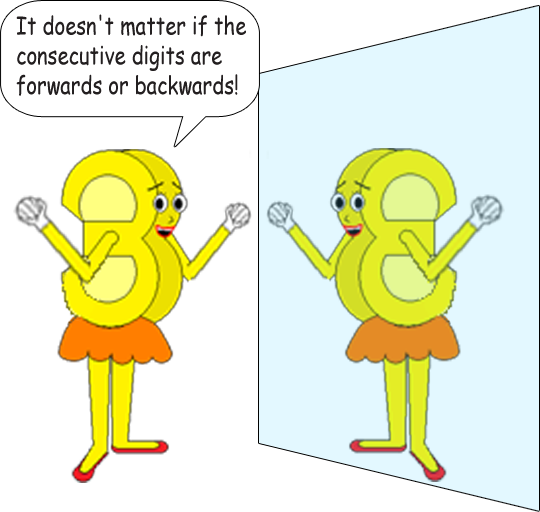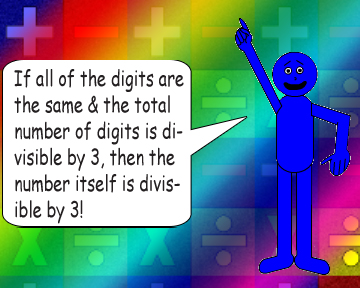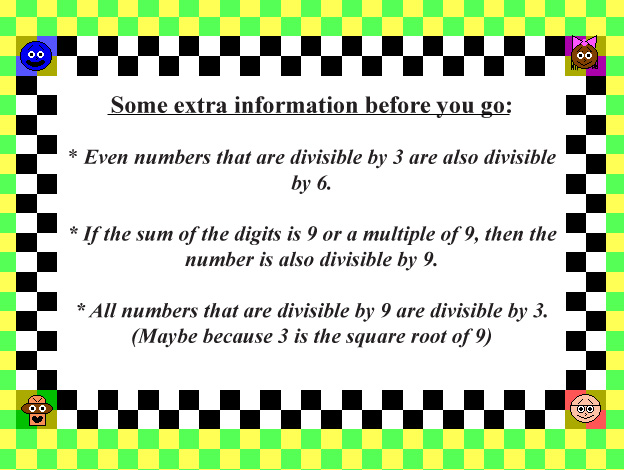
012 ÷ 3 = 4
123 ÷ 3 = 41
234 ÷ 3 = 78
345 ÷ 3 = 115
456 ÷ 3 = 152
567 ÷ 3 = 189
678 ÷ 3 = 226
789 ÷ 3 = 263
[The pattern stops here since 9 is the greatest digit & 890 is NOT divisible by 3]
The number is especially divisible by 3 if the total number of digits is divisible by 3! (Have you noticed the padding zero I put on the number 12?) All the quotients in the example above have an integral difference of 37.
246 ÷ 3 = 82
468 ÷ 3 = 156
369 ÷ 3 = 123
135 ÷ 3 = 45
123,456 ÷ 3 = 41,152
123,456,789 ÷ 3 = 41,152,263
9,630 ÷ 3 = 3,210
147,741 ÷ 3 = 49,247
If the number of digits isn't divisible by 3 or the digits aren't consecutive, then the whole number isn't divisible by 3.
There's this special rule for divisibility by 3:
If the sum of all the digits in a number is divisible by 3, then the number itself is also divisible by 3.

987 ÷ 3 = 329
876 ÷ 3 = 292
765 ÷ 3 = 255
654 ÷ 3 = 218
543 ÷ 3 = 181
432 ÷ 3 = 144
321 ÷ 3 = 107
210 ÷ 3 = 70
[The pattern stops here since 0 is the least digit & 109 is NOT divisible by 3 (In fact, 109 is a prime number!)]

111 ÷ 3 = 37
222 ÷ 3 = 74
333 ÷ 3 = 111
111,111 ÷ 3 = 37,037
444,444,444 ÷ 3 = 148,148,148
555,555,555,555 ÷ 3 = 185,185,185,185

Back to Index Page Back to Math Trick Menu
© Derek Cumberbatch